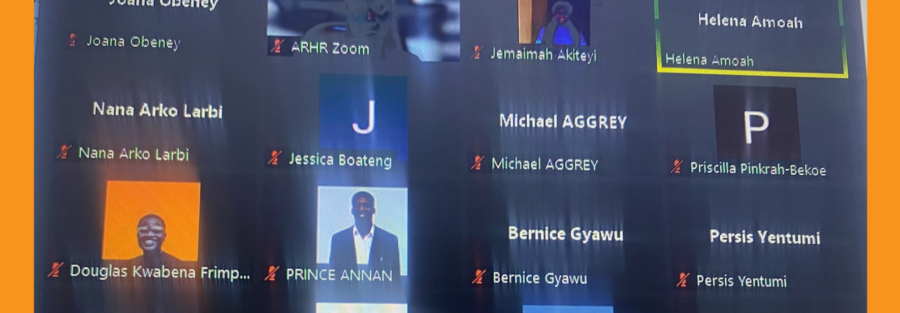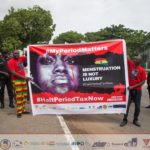Powered by the Ghana Civil Society Organizations (CSOs) Platform on the Sustainable Development Goals (SDGs), the Alliance for Reproductive Health Rights (ARHR) in collaboration with Curious Minds Ghana organized a webinar on the theme “Advancing CSOs’ Advocacy and Actions for Maximum Impact” on 7th June 2023. The webinar was organized as part of activities to commemorate this year’s World Menstrual Hygiene Day and advocate for improved menstrual hygiene management for women and girls.
Three (3) passionate advocates for women and girls from Curious Minds Ghana namely Ms. Joana Obeney, Ms. Jemaimah Akiteyi, and Ms. Helena Amoah were resource persons for the webinar which was moderated by ARHR’s Communications Manager. Discussions centered on the need to accelerate CSOs’ advocacy and actions to improve menstrual hygiene management. Arguments were made that menstrual hygiene management must be prioritized by all stakeholders to improve the health outcomes of women and girls.
This was because poor menstrual hygiene management can lead to serious health issues and infections like urinary tract infections and others. Other issues of concern affecting the proper management of menstruation like the lack of accessible sanitary products, unhygienic bathrooms, and stigmatization have negative impacts on the health and overall well-being of women and girls.
The need for CSOs to put aside individualism and work collaboratively to get the government to scrap excess taxes on sanitary products was amplified. Mention was made of how CSOs in Ghana collaborated during this year’s World Menstrual Hygiene Day to advocate for the removal of excess taxes on sanitary products. This collaborative advocacy was worth advancing by CSOs in Ghana to achieve maximum impacts for women and girls and get the government of Ghana to scrap excess taxes on sanitary products and make them accessible to all.
Participants (both males and females) shared their first experience or encounter with menstruation. One male participant said that he used to laugh at girls when they stained their dresses. Another male participant said he thought menstruation was a kind of sickness and so mocked girls in his class. Growing up, however, he realized menstruation is a biological part of women and girls. He is currently a champion who advocates for proper menstrual hygiene management for the well-being of women and girls.
A female participant who shared her first menstrual experience said she thought she had injured herself hence the bleeding and that it took continuous assurances from her mother to calm her down.
Evident from the experiences was the lack of and in some instances, inadequate, information and education for girls before they reach the stage of menstruation. Advocacy was made for increased access to education and information on SRH to girls to bridge the knowledge gap on menstruation.



